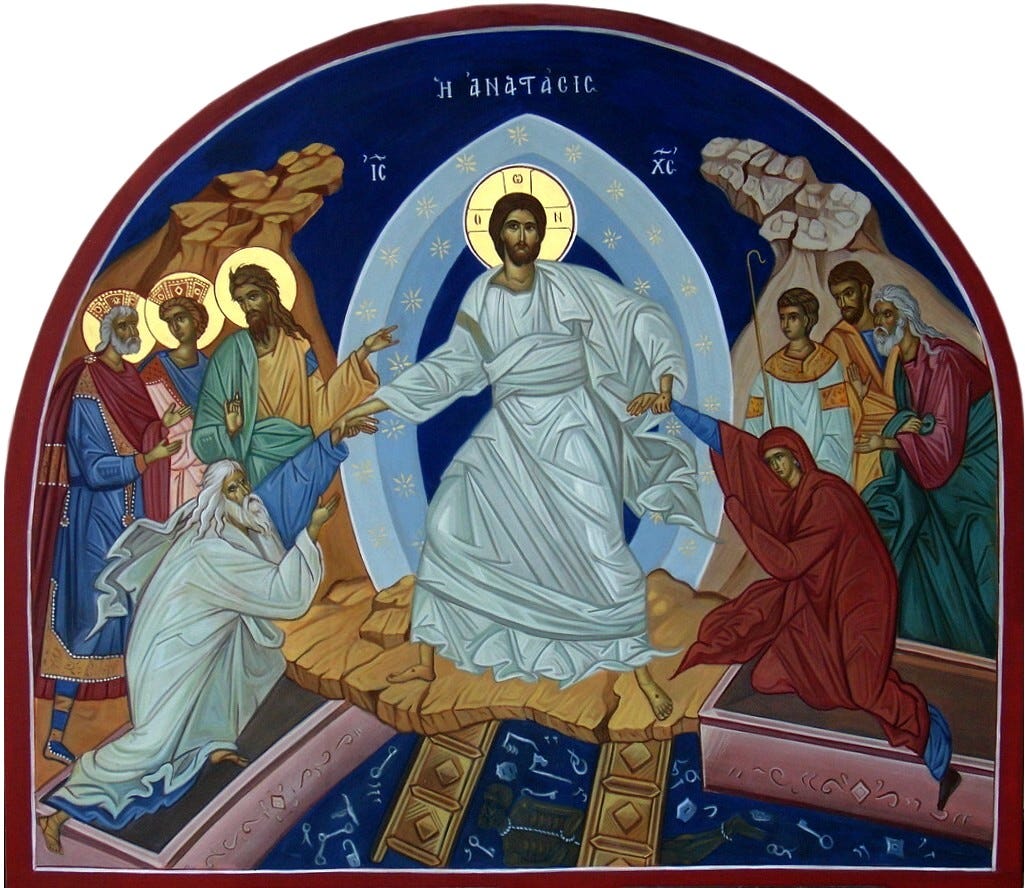
In The Master and His Emissary, a book which challenges both popular misconceptions of hemispheric differences in the brain and the reactionary academic position that there is no difference, Iain McGilchrist argues that all we know is ultimately rooted in metaphor, and that metaphor is rooted in the body.
It is also a truth about epistemology, how we understand things. Any one thing can be understood only in terms of another thing, and ultimately that must come down to a something that is experienced, outside the system of signs (i.e. by the body). The very words which form the building blocks of explicit thought are themselves all originally metaphors, grounded in the human body and its experience.
Metaphors, even the simple ones hidden in expressions like feeling ‘down’, derive from our experience of living as embodied creatures in the everyday world. The body is, in other words, also the necessary context for all human experience.
(The Master and His Emissary, p. 118)
It’s a simple point, and one that I was sceptical of at first, before wondering how I’d ever thought otherwise. We know all things by metaphor because we know all things by comparison - I only ever learn anything new by comparing it to things that I already know, and then working out the similarities and differences. Even things that don’t fit into neat categories rely on neat categories to not fit into. From the simplest of concrete objects to the most sophisticated of abstract concepts, all is known by way of comparison.
We then find when follow the comparisons all the way down that they have their ultimate cash value in the body. Eventually the comparisons will reach the level of my embodied experience, that is to say, eventually the comparison I am making will be with something that I can touch, taste, or smell, or with some aspect or function of my body, or I will be using my body as the reference point (perhaps spatially, speaking of God as being ‘above’ me, for example).
All knowledge is dependent on my physical existence - not just for the neurons themselves, but obviously that much is true - and there is nothing that I know or think that does not have some concrete referent.
All of which is to say that God is essentially unknowable. I choose my terms carefully here, following the favoured distinction of the Eastern Church between God’s essence and his energies. God’s essence, that which he is in himself, is incorporeal, non-physical. God is Spirit, not flesh. The very thing that we depend on for all knowledge is the very thing God doesn’t have. And, since we so frequently forget this point, ‘Spirit’ is a metaphor that is rooted in our bodies: wind or breath. Even our best and most biblical term for describing what sort of ‘thing’ we might say God is falls short on this most fundamental point.
God is therefore essentially unknowable - the type of being he is is so fundamentally different from the type of being that we are that we have no access to him, we cannot even begin to imagine him, since all our raw material for imagination is physical.
Of course, the Church’s theologians, both in the East and West have always known this, and so said that we can only know God by negation (apophaticism, i.e. saying what God is not - invisible, immortal, etc.), or by analogy (in which we also have to say that God is like something, but also not actually that - using metaphorical language to bridge the chasm between us and God).
This is one of the reasons why the incarnation of the Word is so fundamental to the way in which Christians talk about God. God makes himself knowable in the only terms in which anything is knowable to humans: he too becomes flesh.

Very interesting. I certainly agree with your premise, but I must disagree with your conclusion. I think what this means is that God is essentially unknown. However, the mechanism of metaphor does allow us access to knowledge of things beyond our tangible experience. One is not born with knowledge of democracy; one acquires it by means of metaphors building on metaphors. So it is with God, and more so. We come into the world knowing nothing of God, but the things in this world teach us about God by analogy, so we can get to know him better and better.
Because God designed this world, he is able to put in it exactly the points of comparison we need to increase in knowledge of him. And we know that he has indeed done this, because he designed a world capable of containing his very image. Breath is an apt metaphor for spirit because it is one that God himself chose. In this, he did not create breath and then decide fterwards that it was a half decent metaphor for himself. Rather, he designed it to point to himself from the start.
In Christ, God has translated his fullness into human categories, without remainder. This does not mean that any man can ever fully comprehend God, but rather, I think, that there is nothing about God which cannot in principle be understood by a man.